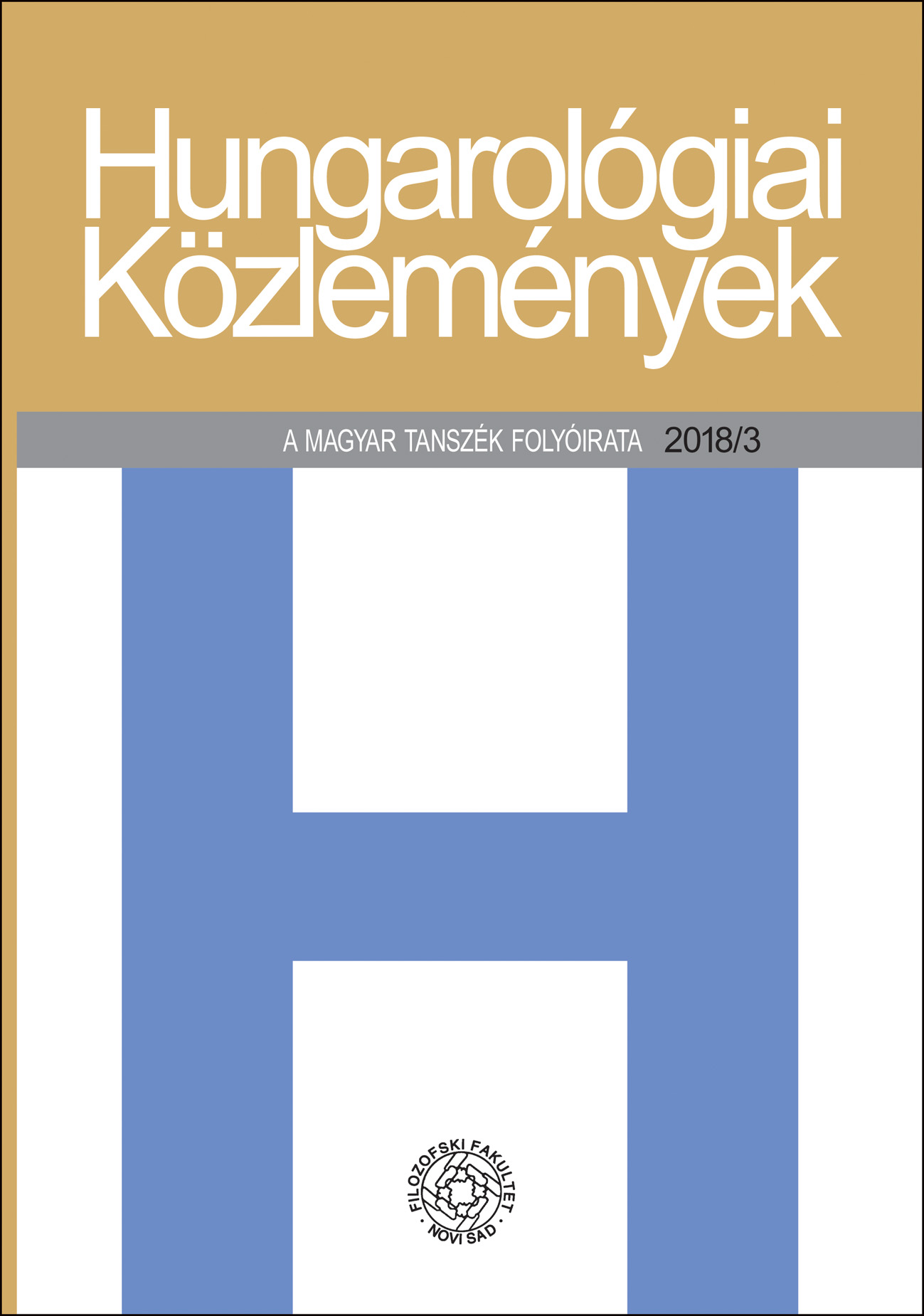A REPREZENTÁCIÓ ABJEKCIÓJA NEMES NAGY ÁGNES FÁK CÍMŰ VERSÉBEN
Absztrakt
A Fák recepciója Nemes Nagy Ágnes emblematikus versét a tárgyias „mögétekintés” ön-újra-felismerést nyújtó folyamatának leírásaként értelmezi. Megközelítésünkben a Fák sokkal inkább a test, a lacani értelemben vett Valós (tapasztalat) elérhetetlenségét, a jelölés (és ezzel a tanúságtétel) lehetetlenségét jelzik, ezzel összhangban az ön-újra-megtalálás csábítását mint üres ígéretet, az üresség ígéretét mutatják fel. E hiány szóvá tétele ugyanakkor a Nemes Nagy-líra önfelszámoló szubjektumának életigenlését is hordozza: olyan beszédként, amelyet épp lehetetlensége tesz lehetővé. A reprezentáció kristevai értelemben vett abjekciója a reprezentáció hiányának szédítő beismerése, de a reprezentáció szövetébe kapaszkodva: a Nemes Nagy-líra sokat tárgyalt „önreflexivitása” mindig (és sokkal inkább) önfelszámolás: a szubjektum (és a vele korreláló tárgy) hiányával való szembenézés – e hiány végtelenítése.
Hivatkozások
Frazer, James G. 1995. Dionüszosz. In Az aranyág. 253–260. Budapest: Osiris–Századvég.
Gáncsos Kármen. 2003. A nemlétezés téveszméje, avagy a posztmodern valóság, amely csak a hiányában van jelen. Charlie Kaufman Synecdoche, New York című filmjének elemzése. Apertúra 2013. ősz: http://uj.apertura.hu/2013/osz/gancsos-anemletezes-teveszmeje-avagy-a-posztmodern-valosag-amely-csak-a-hianyabanvan-jelen/ (2018. jún. 25.)
Gyimesi Tímea. 1995. Az abjekt Julia Kristeva szubjektum-felfogásában. Helikon (1–2): 140–143.
Horváth Kornélia. 1999. Fák, tárgyak, szavak. In Tűhegyen. Versértelmezések a későmodernség magyar lírája köréből. 127–153. Budapest: Krónika Nova Kiadó.
Hódosy Annamária. 1996. Tükör-kép-más-képp. In Hódosy Annamária–Kiss Attila Atilla: Remix. 180–200. Szeged: Ictus és JATE Irodalomelmélet Csoport.
Kerényi Károly. 1977. Görög mitológia. Budapest: Gondolat Kiadó.
Kiss Attila Atilla. 1996a. A gyönyörtelen színház, avagy a reprezentáció kitakarása. A trauma színrevitele A Hamletgépben. In Kiss Attila Atilla–Hódosy Annamária: Remix. 53–62. Szeged: Ictus és JATE Irodalomelmélet Csoport.
Kiss Attila Atilla. 1996b. A dolgok bőre. A felszín szemiotikája a Titus Andronicus-ban és a Hamletben. In Kiss Attila Atilla–Hódosy Annamária: Remix. 63–82. Szeged: Ictus és JATE Irodalomelmélet Csoport.
Kiss Attila Atilla. 1996c. Posztszemiotika. Ki olvas? In Kiss Attila Atilla–Hódosy Annamária: Remix. 9–28. Szeged: Ictus és JATE Irodalomelmélet Csoport.
Kiss Attila Atilla. 1999. A tanúság posztszemiotikája a reneszánsz emblematikus színházban. In Betűrés. Posztszemiotikai írások. 31–86. Szeged: Ictus és JATE Irodalomelméleti Csoport.
Kristeva, Julia. 1995. Egyik identitásból a Másik(ba). Ford. Farkas Anikó. Helikon (1–2): 62–79.
Kristeva, Julia. 2002. A költői nyelv forradalma (részletek). Ford. Horváth Krisztina. In A posztmodern irodalomtudomány kialakulása. Szöveggyűjtemény, szerk. Bókay Antal–Vilcsek Béla–Szamosi Gertrud–Sári László. 106–126. Budapest: Osiris Kiadó.
Schein Gábor. 1998. Poétikai kísérlet az Újhold költészetében. Budapest: Universitas Könyvkiadó.
Tandori Dezső. 1996. Mint egy hír, tölgy-alakban. In Erkölcs és rémület között. In memoriam Nemes Nagy Ágnes, vál. és szerk. Lengyel Balázs–Domokos Mátyás. 275–277. Győr: Nap Kiadó.
Žižek, Slavoj. 1989. Looking Awry. October, Vol. 50. (Autumn, 1989): 30–55.








